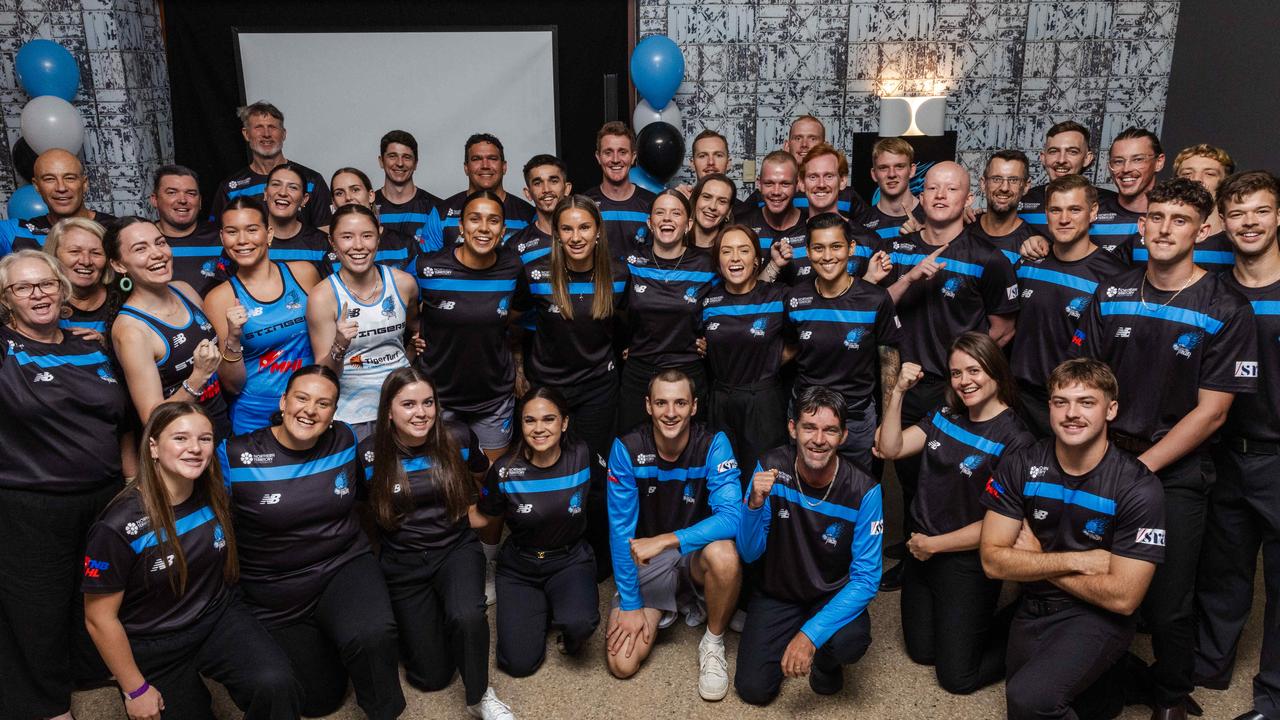Decades-long battle not over yet
A BATTLE over land in the centre of Darwin has raged for decades. Last month, the war reached a definitive crossroads. However, the custodians still have a fight on their hands
Lifestyle
Don't miss out on the headlines from Lifestyle. Followed categories will be added to My News.
HELEN Secretary is tired.
She’s tired of fighting against her own people, tired of being disrespected as a custodian of Aboriginal land by “so-called environmentalists and heritage people”.
Ms Secretary is the chairman of the Gwala Daraniki Association which holds the Kulaluk and Minmarama Special Purpose leases in Darwin.
The association is made up mainly of the Secretary family and extended relatives at Kulaluk — a small pocket of land in Coconut Grove where about 50 people live in nine houses and a few bedsitters.
Her people want to develop the land they have for retail, industrial and residential use.
But this prospect has not been easy.
●●●●
KULALUK was the first piece of urban land ever returned to an Indigenous community.
It was given back by former Chief Minister Paul Everingham in 1979, following a court battle for land rights over parts of Darwin, that resulted in the granting of special purpose leases over areas including Bagot community, One Mile Dam, Kulaluk and Minmarama.
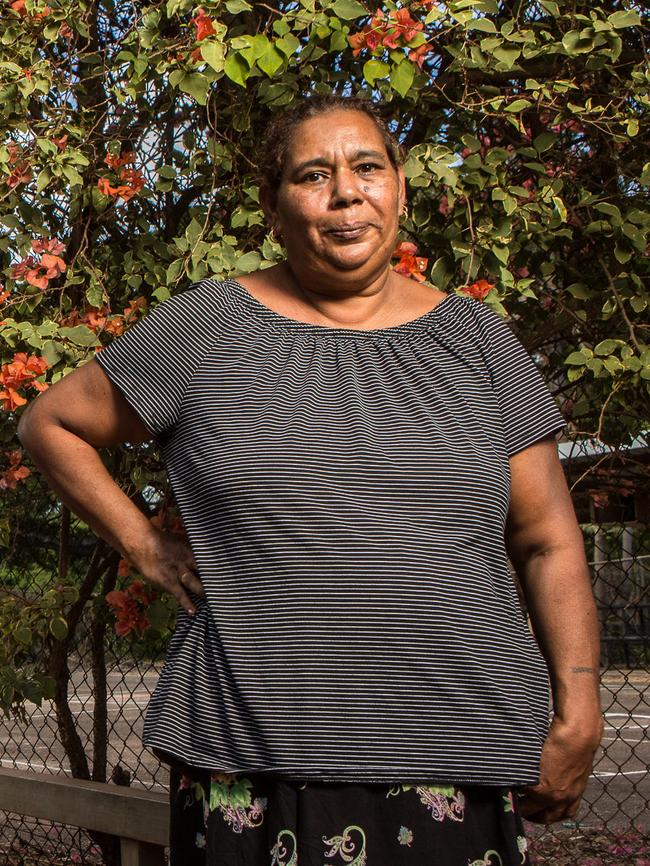
By developing the land between the Darwin suburbs of Ludmilla and Nightcliff, the Gwala Daraniki Association would have money for new houses on the Kulaluk and Minmarama communities and, hopefully, surplus to fund an aged care facility.
They would be able to control their own destiny and shake free of the shackles of government dependence, Ms Secretary says.
It’s a plan that has faced many hurdles, with court challenges and battles on heritage and environmental fronts.
The hurt and pain is obvious in Ms Secretary’s voice as she talks about the long years battling against outsider interest groups that wanted a say in the land’s future.
“This is our home,” she says.
“We just want to be left alone to live in peace, but instead we have had to fight government and attempts to use heritage listing to stop us (developing).”
She was referring to attempts to have the Kulaluk Lease Area declared as a heritage place — a process which has dragged on for years.
“It started off back in 1993 when my grandmother was alive ... I argued with the heritage office and Aboriginal Protection Authority, but they disrespected me as a custodian by saying they knew better,” Ms Secretary said.
The Aboriginal Areas Protection Authority is the independent statutory authority set up under the Northern Territory Aboriginal Sacred Sites Act to protect Indigenous sacred sites on land and sea across the whole of the Territory.
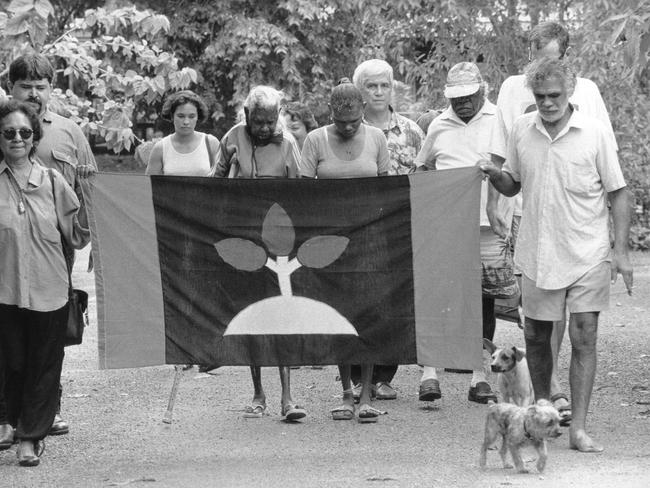
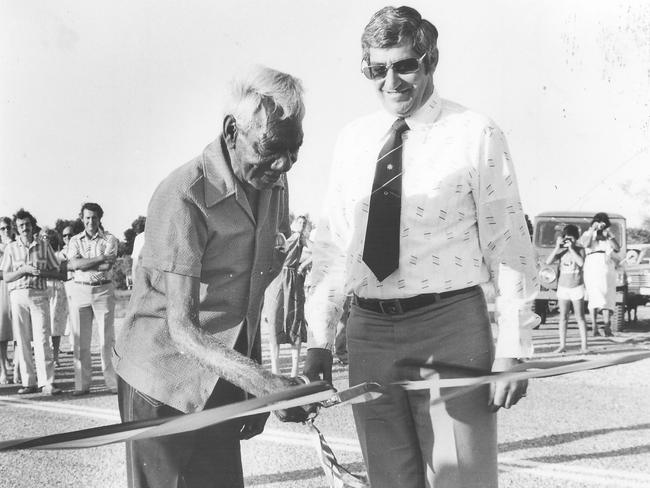
ut all this talk of heritage has nothing to do with Aboriginal people, Ms Secretary says.
“That’s white people’s language. Heritage is white man’s heritage, where they can go and heritage list Captain Cook’s cabin,” she says.
“For years we have suffered because of all the hurdles put in front of us, stopping us from moving forward and making our association better by economically opening up our land for employment, housing, and our kids’ education.”
She spoke of the war waged to stop her organisation developing the land — a contradictory battle, with the other side arguing the area should be heritage-listed due to it being Larrakia land.
“We have had all these objections against us from the Environmental Defenders Office, supporting Larrakia nation and interfering with the Gwala Daraniki Association,” she says.
“Our old people were Larrakia people.
“I had to put up with a white defenders office disrespecting my knowledge, when I have lived on this land since a child. We have had nothing but hurdles unfairly put in our way.
“It was wrong to try and heritage (list) our land. We were put through hell. I was raised on this land.”
David Morris, principal lawyer at the Environmental Defenders Office represented Larrakia Nation woman Donna Jackson in the Supreme Court fight to stop the Gwala Daraniki Association from going ahead with its plans for industrial and retail development on Kulaluk.
Mr Morris and more than 200 other people and organisations who made public submissions helped persuade the NT Heritage Council to recommend the land be protected.
“Kulaluk is centre stage for one of the most fascinating stories in the Territory’s history, the struggle for land rights,” Mr Morris said during the battle.
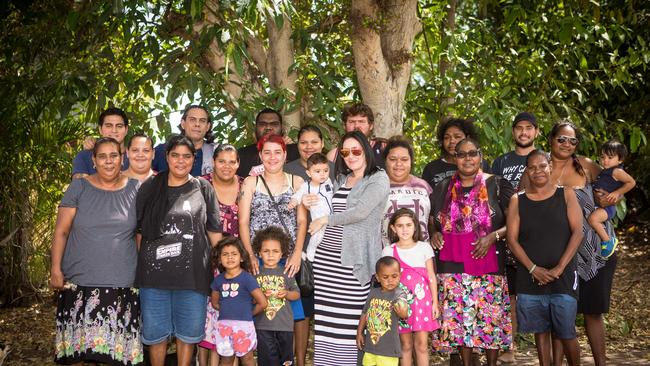
“It’s culturally important and environmentally just has an incredible value to this city. There’s not many other places you can walk and see a jabiru before breakfast.”
●●●●
DESPITE the protests, last month the Gunner Government decided not to proceed with the heritage listing.
Environment Minister Lauren Moss said at the time: “After considering the matter carefully, I can confirm the site will not be permanently declared as a heritage place on the basis that it can be appropriately preserved and protected under existing provisions, without the need to rely upon such a declaration”.
Ms Moss’ announcement came at the conclusion of years of difficulty in getting custodians’ hopes to be heard, Ms Secretary says.
“We were happy when the Northern Territory Government signed a Memorandum of Understanding with the Gwala Daraniki Association in 2015,” she says.
“At last we thought we were going to be able to unlock the economic potential of our land but then the new government decided to hold us up.”
Last year, the former Country Liberals Lands Minister David Tollner declined to declare the Kulaluk lease area as a heritage place.
However, the Gunner Government decided to revisit that decision upon coming to office last September.
Mr Tollner said last month’s decision by the Gunner Government not to proceed with the heritage listing vindicated his original decision.
“For too long governments have been reluctant to hand Indigenous people full control of their own lands,” Mr Tollner said.
“The most effective way we can honour the importance of this lease is by allowing the GDA to determine how their lands will be developed. A heritage listing would prevent future development and would not protect any historical association with the Aboriginal land rights movement.”
Ms Secretary said GDA members were just hoping they would now be allowed to move on with their lives.
“The GDA will now have the chance to break the cycle of welfare dependency and provide more income and jobs for the communities of Kulaluk and Minmarama,” she says.
“We want to use our land … we will not sell it.
“We will lease it and we will create jobs for Aboriginal people, build new houses.
“We want to improve the living conditions and quality of housing for the people of our community.
“We want to get our young people trained. We want to give them better opportunities in life which this heritage fight has held up.
“We have young people that have certificates in civil construction, plumbing, roofing, administration and yet we just do not have any funds.
“It’s about our people’s futures, their kids’ futures and their kid’s futures. “This win is not about clearing the way for bulldozers to destroy our land. It is about sensible redevelopment and doing it the right and proper way.
“ ... If it is okay for the wider non-Indigenous people to buy land, build a home, or start a business and make a living out of it, why can’t we?
“Our association has 300 hectares of land and we want to use that for the benefit of our community and our people.
“We want to take responsibility for own future.
“We just want a fair go.”
Ms Secretary still doesn’t believe the fight is over. She has fired a broadside at the new Chair of the Northern Territory Planning Commission, Dr David Ritchie.
She said it would be inappropriate for Dr Ritchie to have any role in a future that related to development plans involving the Kulaluk lease area.
Dr Ritchie was the author of a report that advocated Ms Moss and the Gunner Government declare the Kulaluk Lease Area in Darwin as a heritage place.
“We see his report as hostile to what we argued on behalf of our people so it would be hard to expect him to change his position,” she said.
“So we believe he cannot have any involvement in the future with Gwala Daraniki Association plans ... I would hope he excludes himself from anything related to Gwala Daraniki in the interests of impartiality.”
A spokesman for Planning Minister Nicole Manison said page 89 of the Planning Act had very clear guidelines relating to conflicts of interest which should allay concerns.
However, for Ms Secretary, the battle won’t be over until the first bricks of the association’s self-determined development are laid on their own land.

